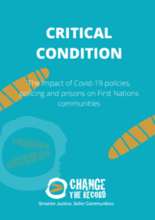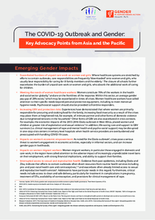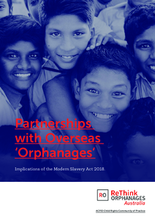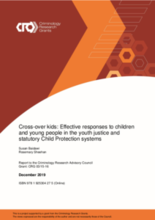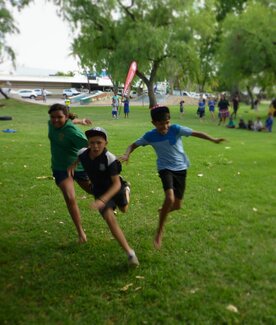

Displaying 231 - 240 of 677
This report from Change the Record aims to provide an Australian national overview of the Critical Condition of First Nations communities during Covid-19. The report includes evidence on the impacts of the COVID-19 crisis on children in detention centers as well as children in out-of-home care and their families.
This resource outlines the gender impacts of the COVID-19 crisis, including the greater risk of exploitation and violence for women and children, as well as some recommendations for mitigating and responding to these challenges.
This briefing note was developed by ReThink Orphanages Australia and the ACFID Child Rights Community of Practice to assist entities in Australia and abroad who have orphanages in their supply chains and/or operations to understand the implications of Australia’s Modern Slavery Act 2018.
This paper from the Australian Institute of Criminology presents selected findings of a detailed case file audit of 300 crossover children (children from child protection backgrounds in the youth justice system) appearing before the Children’s Court of Victoria, Australia in 2016–17.
Drawing on the findings of a Churchill Fellowship study tour, this article discusses the need to expand understanding of family engagement and, in particular, to implement Family Inclusive practice in Australian child welfare, both to increase reunification and to improve outcomes for children who do not return home.
The present review addressed the research question What evidence is there that parenting interventions conducted with parents who maltreat their children, reduce the incidence of further child maltreatment?
In this article, Patricia O'Rourke describes the way in which she applies psychodrama in her therapeutic reunification work with parents and babies in the child protection system in Australia.
The study set out to examine the extent to which children and young people before the Criminal Division of the Victorian Children’s Court in Australia were also clients of the statutory Child Protection system, and to better understand the characteristics of this group.
The purpose of this study was to estimate the costs of hospitalization for physical and mental health conditions by child protection status, including out-of-home-care (OOHC) placement, from birth until 13-years, and to assess the excess costs associated with child protection contact over this period.
This Australian longitudinal, qualitative study explored child protection worker perceptions and experiences of resilience to inform understandings of worker resilience, and implications for worker functioning and workforce retention.

